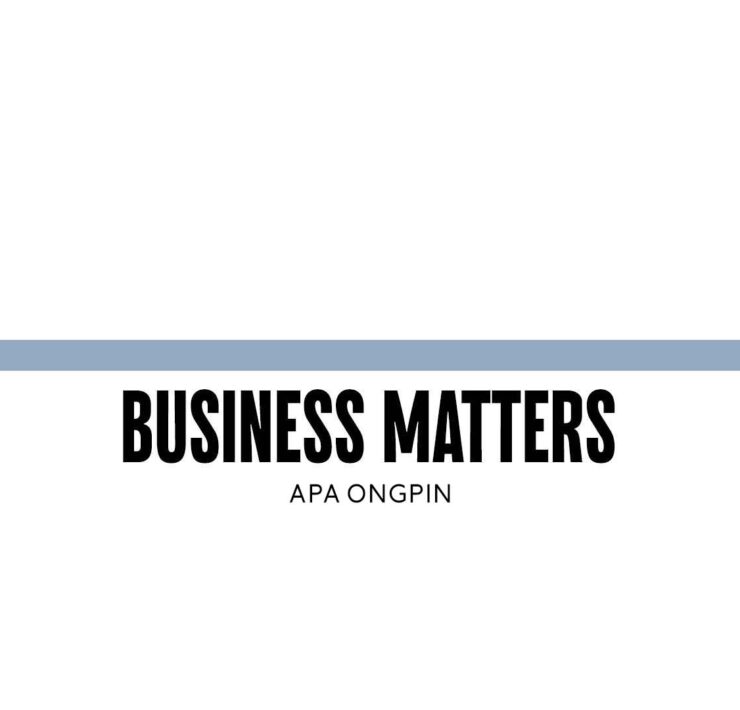AI and ethics in the Philippines’ transformation

As generative artificial intelligence (AI) revolutionizes industries worldwide, adopting trusted AI systems has become a business imperative for organizations globally. Philippine agencies and organizations are considering policies on AI use, emphasizing effective governance as the cornerstone for building trust.
Challenges exist. A recent IBM-commissioned AI readiness study found that 58 percent of organizations in the Philippines are still in the consolidating stage of their data governance framework, which is marked by fragmented responsibilities and lack of skills to manage trustworthy AI effectively.
As senior counsel in IBM’s office of privacy and responsible technology, I’ve engaged with global leaders on responsible AI adoption. Recently, I shared insights with business leaders in Makati, exploring AI’s potential while addressing ethical concerns. We discussed how organizations can move forward responsibly in this rapidly evolving space.
Central to our discussion was the concept of AI governance—the principles, policies, and practices that align AI tools with ethical and human values. Governance provides a framework for directing AI research, development, and application, helping mitigate risks like bias and discrimination by promoting transparency and explainability through sound policies and robust data governance.
Responsible AI is a global concern. To build trust in AI systems, three key practices guide adoption: accountability, transparency, and explainability. Accountability assigns responsibility for outcomes to ensure ethical oversight. Transparency lets stakeholders understand the data and systems behind the technology. Explainability demystifies complex algorithms by providing clear insights into their workings and the logic for output.
Globally, efforts are underway to embed trust practices into governance regulations. The European Union’s AI Act sets stringent requirements for high-risk applications. Countries like Korea and Japan are adopting risk-based AI frameworks, while Singapore’s Model AI Governance Framework provides practical guidelines for responsible AI adoption.
In the Philippines, the Department of Trade and Industry’s National AI Strategy Roadmap aims to foster inclusive growth and responsible AI adoption. A national dialogue on ethics will help embed values like respect for human dignity into AI systems, from design to deployment.
IBM’s approach to responsible AI. At IBM, our journey to operationalize “responsible by design” AI has led to pioneering achievements. IBM researchers coined the term “machine learning” in 1959; they debuted the first speech recognition system in 1962. Our other AI-related advancements over the decades led us to see that the power of the technology called for data responsibility. In 2018, IBM issued its “AI Principles of Trust and Transparency.”
IBM put these principles into practice by conducting studies on reducing AI bias and advancing shared prosperity with AI. We made tool kits available to open-source developers and adopted an integrated governance program with an AI Ethics Board that guides IBM teams with ethical AI practices worldwide.
IBM co-founded and joined various alliances on responsible AI, sharing policy perspectives on balancing trust and innovation. The World Economic Forum recognized our efforts in its whitepaper, “The Responsible Use of Technology: The IBM Case Study.”
Today, we continue moving from ideas to implementation, from governance to technological products. IBM’s watsonx.governance solution uses generative AI to help organizations manage AI deployment activities, enabling oversight for compliance with regulations—even when regulations change.
IBM’s own AI governance journey not only helped us scale trustworthy AI for our business, it also served as a blueprint for other organizations looking to adopt similar practices.
A shared responsibility in the era of man and machine. In our journey, we learned the importance of fostering a culture of AI literacy by educating our employees and stakeholders on AI’s capabilities and limitations. This involved instilling a sense of responsibility and accountability in capturing opportunities.
To drive meaningful change, leadership teams must engage in conversations with management and boards of directors. A collaborative approach among industry, government, academia, and civil society is critical. And as modern careers necessitate a workforce with in-demand skills and values, the urgency for these conversations grows.
With the right trusted partner organizations, we can collectively shape how AI is adopted and governed in the Philippines, eventually realizing the benefits while managing risks responsibly.
—————-
Ida Chao Kho is the worldwide emerging regulatory policy senior counsel for AI, privacy, cyber, and data governance for IBM.
—————-
Business Matters is a project of Makati Business Club (makatibusinessclub@mbc.com.ph).





















Barangay, SK term extension: A threat to democracy